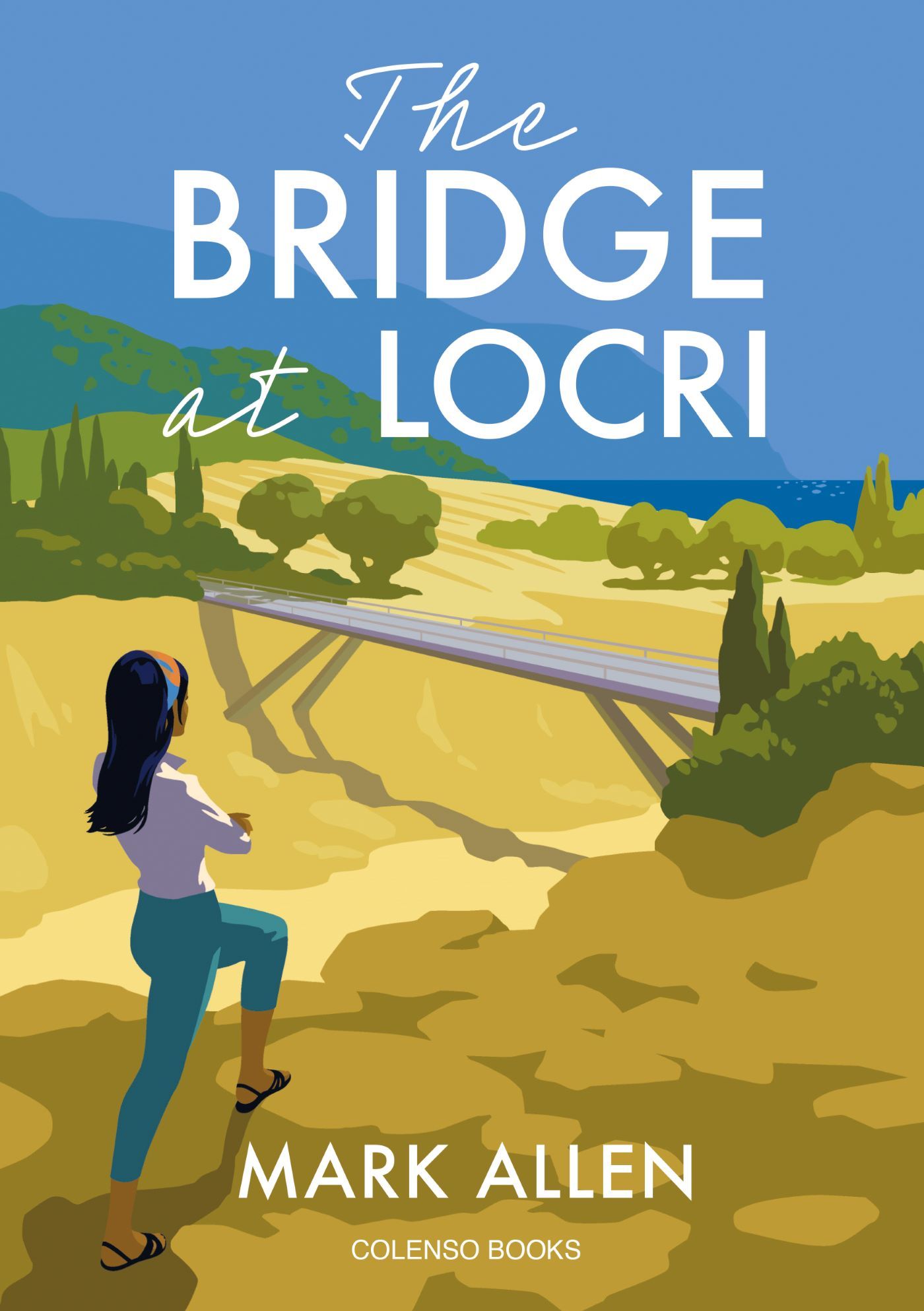The Bridge at Locri
Synopsis
These disparate characters from diverse backgrounds and nations begin as comrades working for a common cause, yet their ideals are tested in arguments over the collective good versus the rights of the individual, while personal desires quickly create further schism.
The touch paper is lit when one of the volunteers, beautiful Italian heiress Isabella from Rome, mysteriously disappears. She has been having affairs with two members of the group, but her magnetic presence affects everyone for different reasons. Has she been murdered or kidnapped for money by Calabria’s notorious ‘?
An innovative structure to the book delivers on another level. The Bridge at Locri also charts 60 years, from 1963 to 2023, of a changing world seen in the eyes of the characters who come from Somerset in England, East Germany, Bosnia, Australia and Colombia.
The novel follows chronologically these characters through the prism of their own lives, with each facing the challenges of the societies around them. Beneath the surface each character is haunted by the disappearance of Isabella in 1963.
This elegant page-turning mystery novel lures you into a wider view, offering a snapshot of six decades of our history brought to us by the voices of six intelligent, passionate and flawed characters from different corners of the world.
Above all, The Bridge at Locri is a story about building bridges – and burning them at the same time. A story of our time.

Read a free excerpt
The first time I clapped eyes on Isabella she was pushing a wheelbarrow full of concrete and
shouting profanities at Maestro Pedro. It was July the 19th, 1963.
“Questa e merda!” she exclaimed before switching to flawless English. “This is shit! There’s
too much water in the mix and not enough sand.” She banged on the wheelbarrow, mixing the
two languages. “And fuck this carriola, it’s too hot to work.”
Whether Maestro Pedro completely understood her was not clear, but he paused and smiled
benignly. Her rant suddenly over, Isabella started to push the wheelbarrow for several yards before
tipping its contents into an excavated area which would form part of the approach to the bridge.
Isabella was one of those people you see once and never forget. She was straight off of a film
set, completely at odds with her current environment. She was the epitome of classical beauty with
a tanned face of perfect symmetry, her long, thick, dark locks falling down her back. Despite the
heat and the dust not a hair seemed out of place. She was slim, about five-foot-seven, wearing
sleek blue jeans and a white top. Her dark eyes sparkled in the hazy, late afternoon sun with a sense
of bewilderment and fun. Despite her glamourous appearance she was obviously well able to push
a wheelbarrow around.
To say that Isabella made an immediate impression on me is a complete understatement. It
was like being hit by a tidal wave of possibility, adventure and expectation. Here was I, a country
boy straight out of boarding school, confronting for the first time the most extraordinary woman
I had ever seen. It is simply not true to say that people do not fall in love at first sight. Not true
for a second. I was captivated in a way that I’d never imagined.
Now she turned and spotted me, eyeing me with amusement. “You the new English guy? I
hope you have brought your bloody tea with you. Tea. Tea. Tea. That’s all you English think about,
isn’t it?”
She did not wait for an answer before turning to her more heavily built and shirtless
companion. “This is Maestro Pedro. He’s the one professional worker we have. The rest of us are
a bunch of amateurs trying to work it out.”
“And beer,” I said, shaking Maestro Pedro by the hand.
“What’s birra got to do with it?” she asked.
“Nothing, except you said that we English only think about tea. We also think about beer as
well. And I could do with one right now.”
“Sei un po’ avanti. You are a bit ‘forward’ — I think that’s the word — for a young boy. You
come to Calabria and the first thing you ask for is a beer. Next thing you will be asking for is
a . . . I won’t say it, but the word begins with an F. How old are you?”
“Nearly nineteen. And you?”
“You never ask an Italian lady her age, but let’s say that I am five years more grown up than
you.”
“You speak such good English.”
“Thank you, but you’re teasing me. I make lots of mistakes. I studied English at university in
Rome and spent a few months in your cold and wet country in a place near London called
Bromley.”
“I have heard of it, but I come from a small town called Castle Cary in deepest Somerset.”
“Zummerzet,” she said, with a good attempt at mimicking the accent, “where the zider apples
grow.”
“Spot on,” I replied, “You seem to have a much better grasp of England than I do.”
“If you had said Yorkshire, I wouldn’t have had a clue, but I went on holiday for two weeks
in Wells — what a lovely cathedral — so I know a tiny bit about your county. And I had an English
friend who came from Shepton Mallet in Somerset and I stayed with her and her family on one or
two occasions and they would take me to the pub to drink cider. So there you go.”
